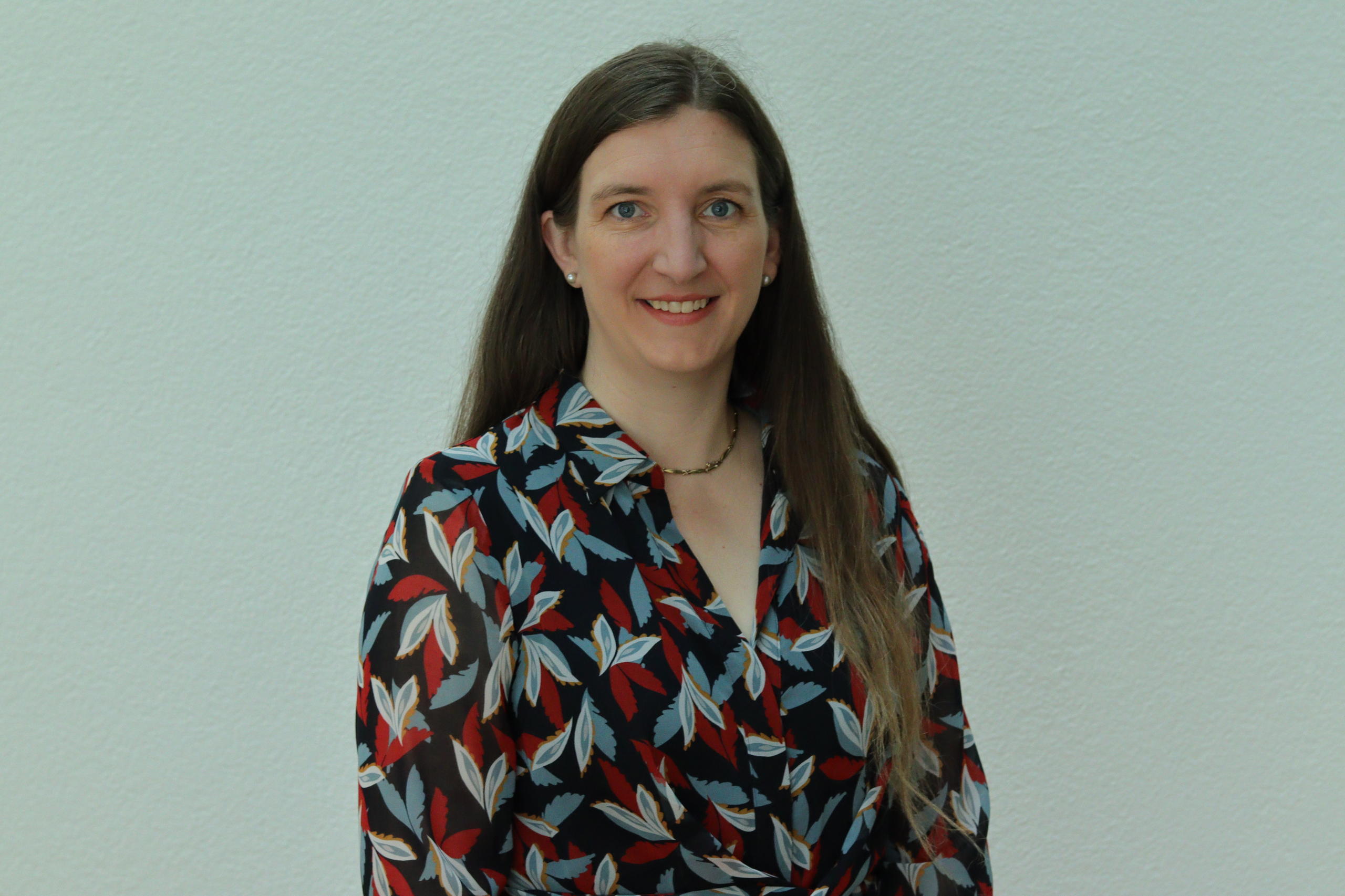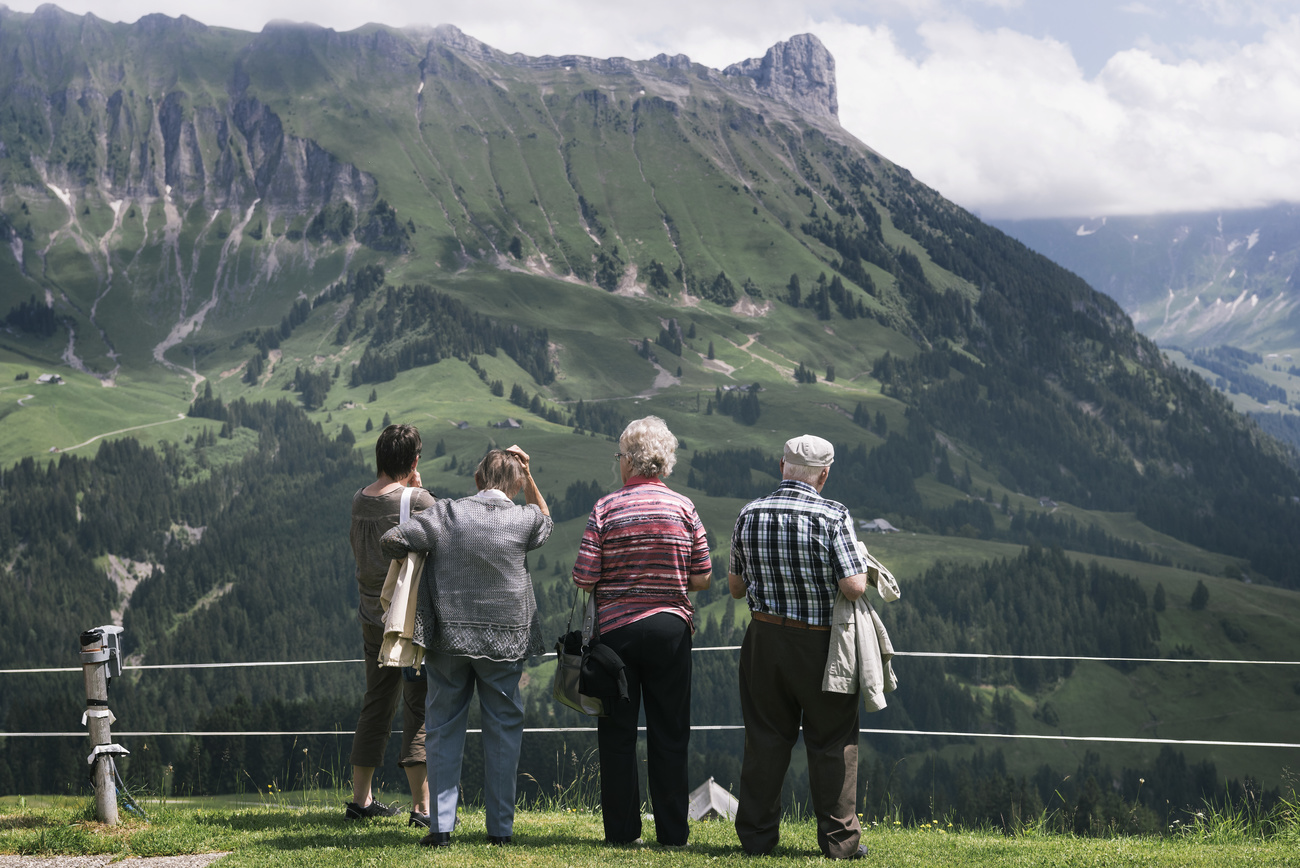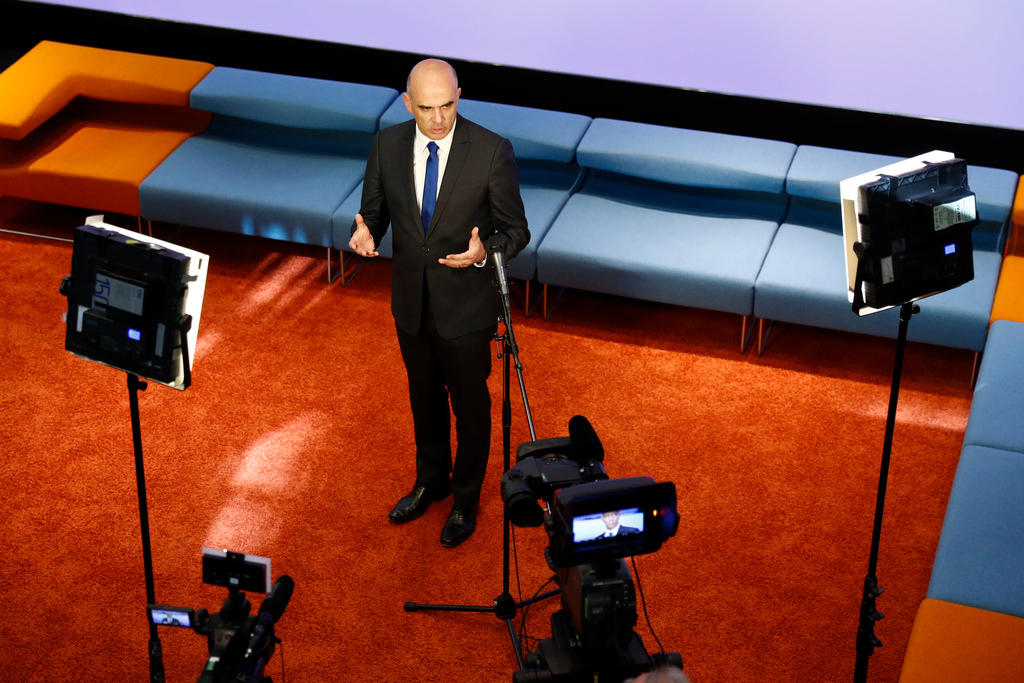Pensions vote: a yes would ‘help to eliminate inequalities’

The reform of the Swiss old-age pension scheme, up for vote on September 25, will boost the financial situation of retired women, says Brenda Duruz McEvoy, head of social policy at the employers’ association in canton Vaud.
After two previous reform efforts failed at the ballot box in 2004 and 2017, the Swiss are set to vote again on a proposal to revamp the pension system to ensure its financial viability.

More
Women’s retirement age to be voted on again
The central plank of the reform is an increase in the retirement age for women from 64 to 65, putting them on an equal footing with men. Government, parliament, and parties from the right and centre all say this is a necessary measure. But the change provoked an outcry from the left and trade unions, who collected 150,000 signatures to force a referendum.
Brenda Duruz McEvoy, a pensions expert at the Centre Patronal in canton Vaud, supports the so-called “Pensions 21” reform package. She believes women have more to gain than to lose by accepting it.
SWI swissinfo.ch: In 2021, the old-age pension scheme closed the financial year with a profit of CHF2.6 billion ($2.64 billion). Is there really an urgent need for reform?
Brenda Duruz McEvoy: Yes, there is. People who oppose the reform like to quote this figure, but they have a short memory. The positive results in 2021 and 2020 were due to a corporate tax reform, accepted by Swiss voters in 2019, which included a mechanism to boost the pension system. Over the past two years this has meant an extra CHF2 billion per year. But while the system is not doing so badly today, this is because it is on life support. If the proposed reform is rejected, the Federal Social Insurance Office predicts a future shortfall of nearly CHF5 billion a year in retirement funding.
SWI: Women’s pensions are a third lower than men’s. Can they really be asked to work an extra year on top of this?
B.D.M.: This argument is wrong-headed. I am the first to speak out against the inequalities. However, they are not the result of the first pillar (state-backed old-age pension scheme) but rather of the second pillar (occupational pensions). The proposed reform will allow women to work – and therefore to contribute – for an extra year. They will thus have had a full working life, rather than one that is curtailed at 64. This will allow them to receive pensions that are closer to those of men.
More
SWI: Women have lower pensions than men because of wage inequalities, as they are more likely to work part-time, do most of the housework and care for relatives. Should we not first eliminate these problems before increasing the retirement age?
B.D.M.: Raising the retirement age for women will help to end these inequalities. In addition, today this discrimination is not so much between men and women as between parents and people without children; there are also men who work part-time in order to look after their children. The old-age pension scheme is very advantageous to women, who pay 34% of the contributions and receive 55% of the benefits. It is a redistributive mechanism that works in their favour. It is unfair to blame this reform for all the inequalities which women still suffer.
SWI: Supporters estimate that the reform will cost women CHF26,000. Are the planned compensations, such as monthly supplements of CHF160, really sufficient?
B.D.M.: Absolutely. Especially since these supplementary benefits target those women who need them most – that is, those on low or middle incomes. They will have the possibility of earning another year’s salary by working until 65. And a year’s salary, even a low one, is more than a year’s pension. And from age 65 onwards, the transitional generation will receive a higher pension thanks to the compensations – nearly CHF2,000 more each year for life. Women on low incomes will benefit particularly from the reform.
SWI: Labour market prospects for older workers are poor. Will increasing the retirement age not also cause a surge in unemployment and social welfare rates?
B.D.M.: The world of work is changing completely. Today, we face staff shortages. We still have this idea that older people should step aside to let the young find jobs. But companies are struggling to fill positions. It’s still true that older people who lose their jobs take longer to find a new one, but their employment rate is very high in Switzerland – 72.3% for the 55-64-year-olds, according to the Swiss Health Observatory. I don’t think that raising the retirement age will be harmful for older workers.
SWI: The increase in the retirement age for women will go hand in hand with a hike in value-added tax, from 7.7 to 8.1%. What with inflation, rising prices and an expected increase in health insurance premiums, can ordinary people really be made to pay more?
B.D.M.: I do not deny that the rise in VAT is a bitter pill for everyone to swallow. But I think it is worth it to ensure older people continue to receive their pensions safely. We have to pull together. Of course, this will hurt people. It will also hurt businesses. But thanks to the measure, we can all do our bit to safeguard the most important pillar of the old-age insurance system. It is vital that everyone contributes, so that women do not have to shoulder the full cost of bolstering the system on their own.
SWI: Women will have to work an extra year and also contribute through the higher VAT rate. Isn’t that a double whammy?
B.D.M.: Today, the advantages for women in the old-age pension scheme far outweigh the disadvantages. Since us women benefit most from this social insurance, it is also legitimate to ask us to contribute a little more to reforming it. Once the reform is in place, however, the balance will remain very clearly in favour of women. I think it would be unfair and selfish to reject the proposal and to place the whole burden of reforming the system on the next generation. This binary division between men and women is too simplistic; balances must be found across multiple dimensions, especially with respect to intergenerational equity.

More
Switzerland mulls raising the retirement age for women
SWI: Will the next step be retirement at 67?
B.D.M.: Retirement at 67 seems rather high for Switzerland in the immediate future, although in some neighbouring countries it is already the case, for example in Germany and Italy. But in our country, changes are made gradually. The new reform will help to stabilise the pension system in the medium term, for about a decade. After that, we will have to think about how to make it truly sustainable. I personally believe that if we gain two or three years of life expectancy, we can perhaps spend some of that time extending our active lives. However, this is a real societal debate that will have to be held when the time comes.
Below: an opposing viewpoint from Vania Alleva, president of the largest Swiss trade union Unia.

More
Pensions vote: ‘the reform comes at the expense of women’
Translated from French by Julia Bassam/dos

In compliance with the JTI standards
More: SWI swissinfo.ch certified by the Journalism Trust Initiative












You can find an overview of ongoing debates with our journalists here . Please join us!
If you want to start a conversation about a topic raised in this article or want to report factual errors, email us at english@swissinfo.ch.